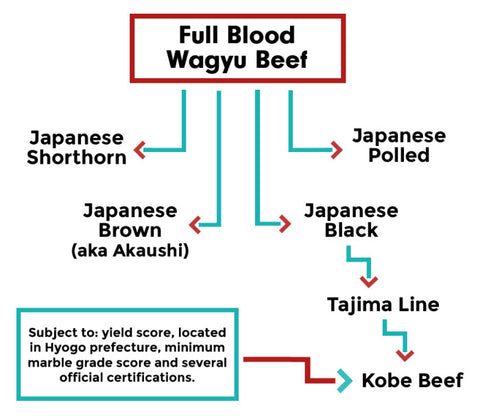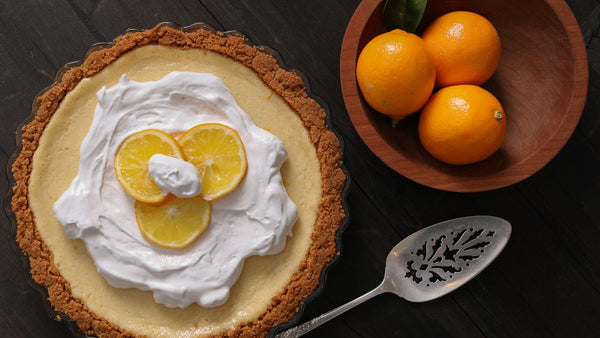For meat aficionados, there’s nothing like the taste and texture of real Wagyu steak.
Smooth velvety texture, juicy flavor, delicate but rich taste will linger on the palate.
"Marbling” affects beef taste, but the marbling fat in the beef is never too rich. The meat almost melts as you put the piece in your mouth.
Wagyu prices can go beyond AED 1,000/- per kg
Definition of 'Wagyu':
The word WAGYU (pronounced ‘wag-you’) literally means Japanese Beef.
- 'Wa' means Japanese
- 'gyu' means cow
History of Wagyu:
Wagyu were originally draft animals used in agriculture, and were selected for their physical endurance. This selection favored animals with more intra-muscular fat cells – ‘marbling’ – which provided a readily available energy source. Wagyu is a horned breed and the cattle are either black or red in color.
Black line: Tajiri or Tajima, Fujiyoshi (Shimane) and Kedaka (Tottori)Red line: Kochi and Kumamoto
Non-Japanese Wagyu:
In 1976, the first 4 wagyu bulls were imported into the US for research around these cattle, but it is only in 1992 that the Japanese Government allowed the first ever, live Fullblood Japanese Wagyu females to be exported out of Japan.
- Japanese black (Tajima-Gyu)
- Japanese Brown (Red)
- Japanese Poll
- Japanese Shorthorne

Wagyu breeding is now available across the world but lead by the US, Australia and recently Russia.
All Kobe beef is Wagyu but not all Wagyu is Kobe!
Kobe, Hyogo – JAPAN:
Kobe beef is like an AOC (Appellation d'Origine Controle - French certification) , only Japanese Black Wagyu (Tajima) born, raised and processed in the Hyogo Prefecture can be labelled as Kobe and they must meet rigorous standards of Marbleling, Weight & Quality.
The Kobe Beef brand uses the Wagyu breed of animal to produce its famous beef, exclusively using the Tajima bloodline. Only the highest quality Wagyu produced in this region has the privilege to be sold under the Kobe Beef brand name.
Authentic Kobe Beef only comes from the Hyogo Prefecture in Japan.
However, the Kobe name has been used commonly to describe different Wagyu brands and products. Unfortunately, like Brie, Camembert and Cheddar in the cheese world, the name Kobe is not currently protected.
Quality, Levels & Classifications:
Wagyu beef offering across the world is drastically increasing across restaurants and gourmet butcheries and proposed as luxury product.
It is understood that any product that has 50% or more Wagyu genetics can be labelled as Wagyu. Therefore, a clear classification of Wagyu is available.
Japanese Wagyu have their own classification ranging from C1 to A5 with A5 being the highest quality Grade.

Non-Japanese Wagyu have a different classification which is as follows:
Full Blood (100% wagyu genetics), Pure Bred F4 (minimum 93% wagyu genetics), Cross Bred F3 (minimum 87% wagyu genetics), Cross Bred F2 (minimum 75% wagyu genetics), Cross Bred F1 (minimum 50% wagyu genetics)

Sources:
- American Wagyu Association
- Australian Wagyu Association
- Blackmore Wagyu
- Wagyu International
- Japan Ministry of Agriculture, Forestry & Fisheries
- Lone Mountain Wagyu





